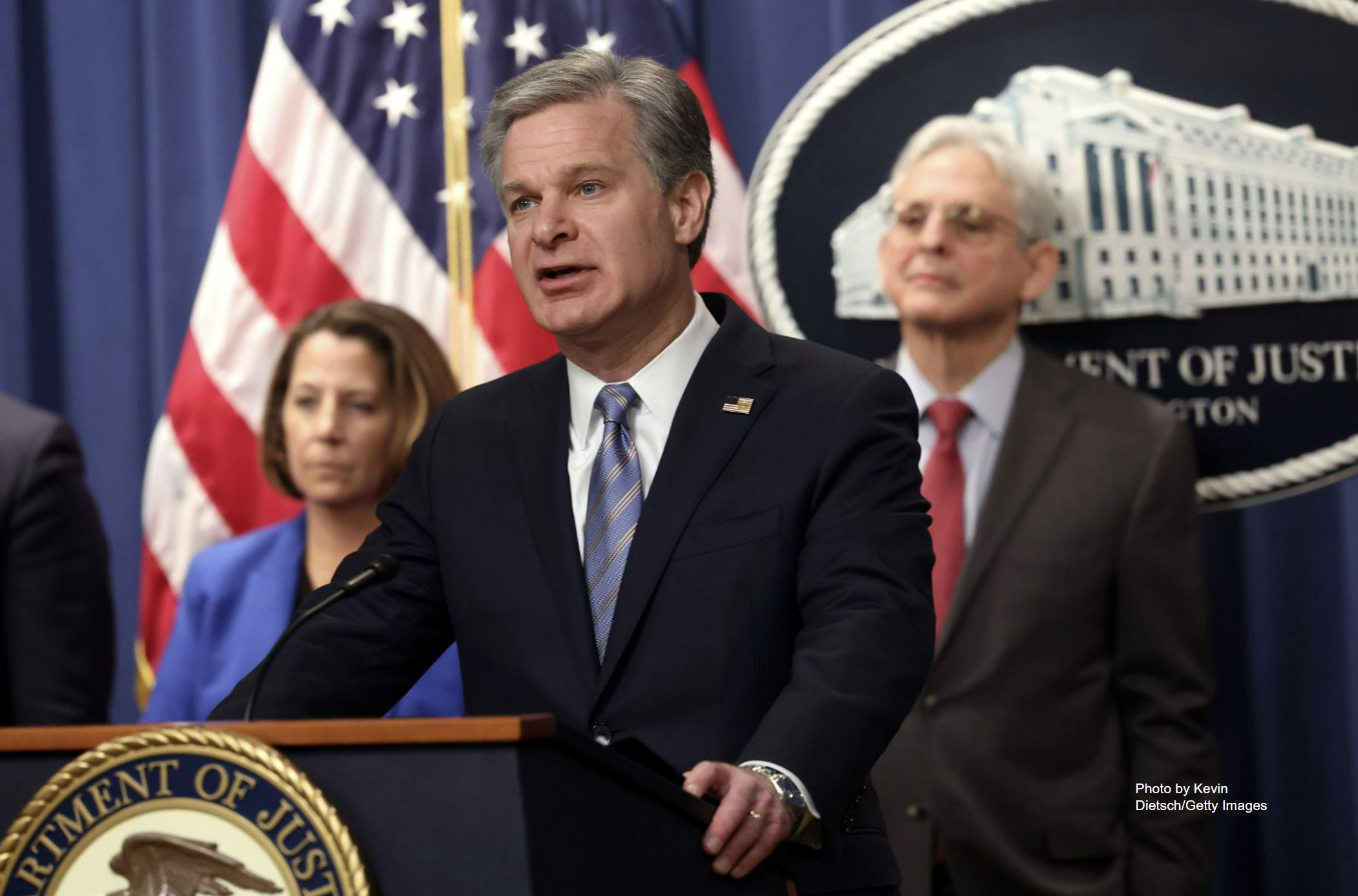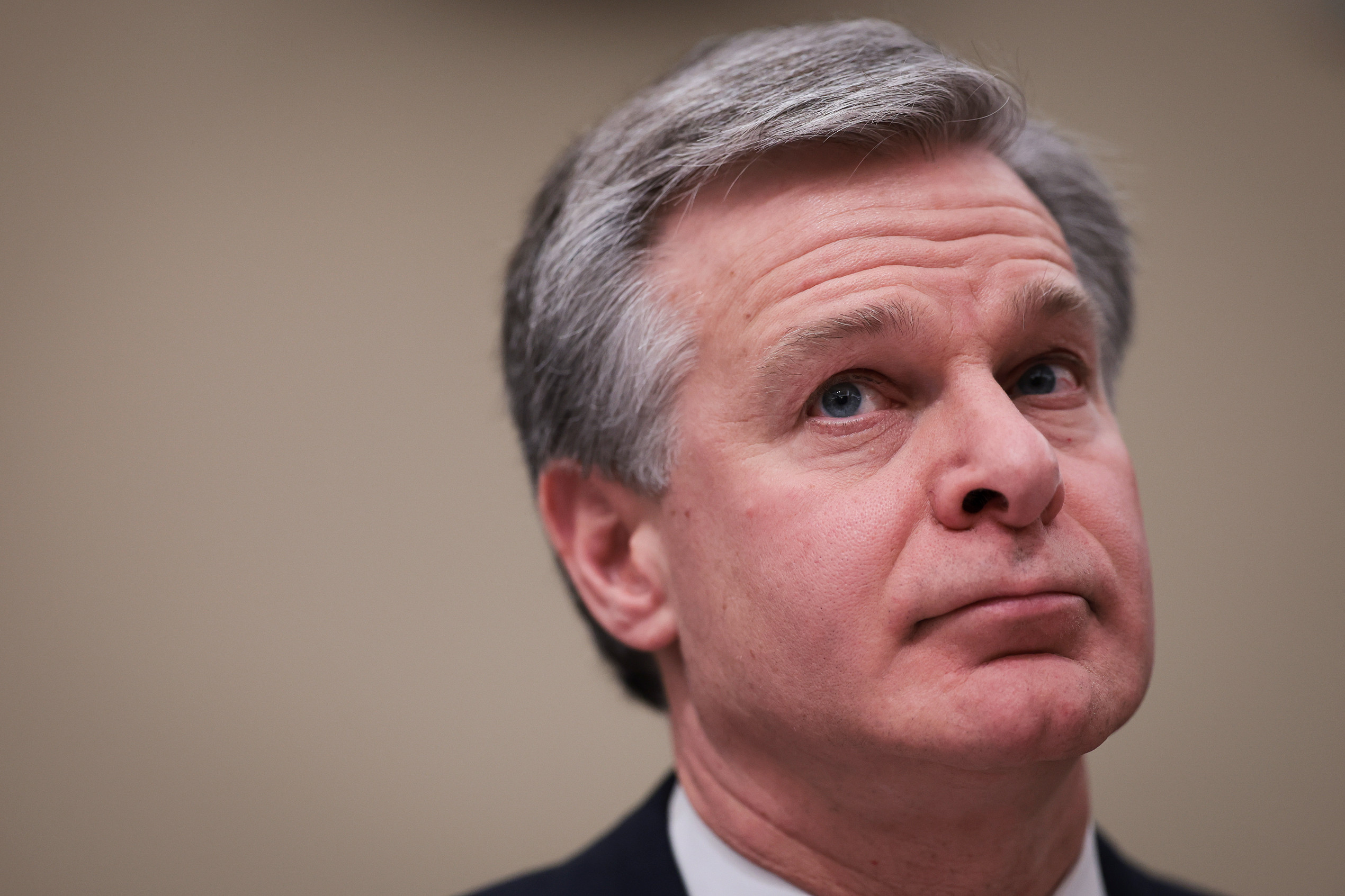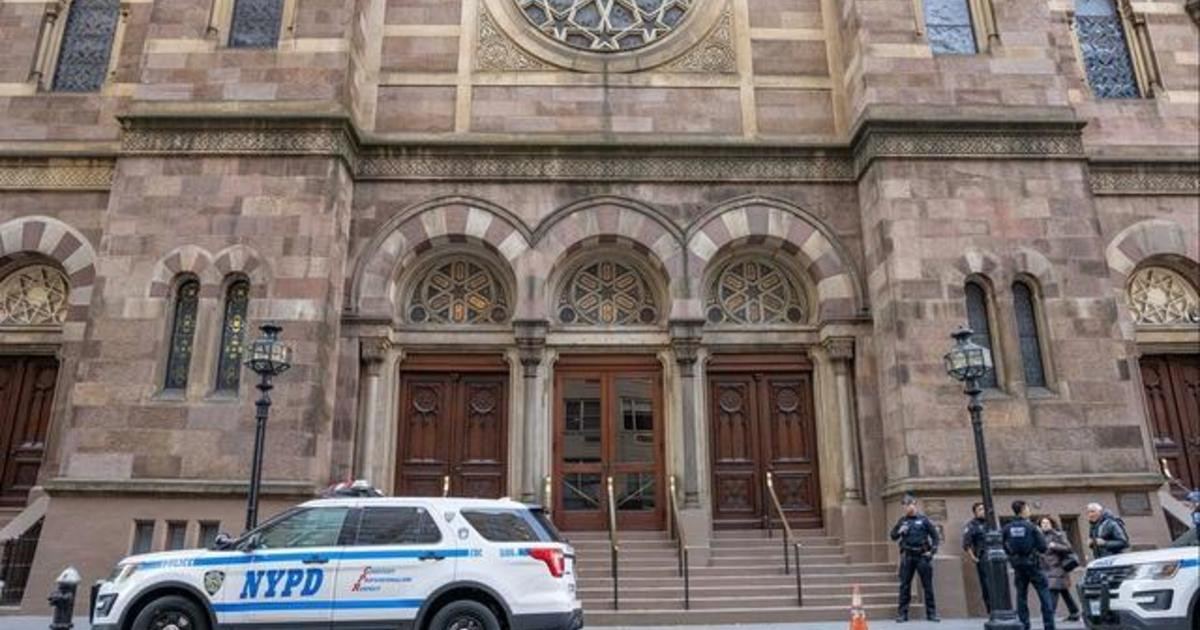Marcus Allen, whose attorneys reached a settlement with the bureau earlier this year, told the Judiciary Subcommittee on Weaponization of the Federal Government that higher-ups “accused me of promoting conspiratorial views and unreliable information” for questioning how many confidential informants were present at the Jan. 6, 2021, Capitol riot.
“The FBI questioned my allegiance to the United States, suspended my security clearance, suspended my pay and refused to allow me to obtain outside employment or even accept charity,” Allen testified about the 27 months he was held in “indefinite limbo.”
“There are no words strong enough to describe the impact the FBI’s lies about me have had on me and my family,” he went on, becoming emotional. “The stress has taken a toll on our health and our children have suffered, traumatized by the thought of our door getting kicked in or Dad not coming home.”
A devout Catholic, Allen said he was even forced to take early withdrawals from a retirement account to make mortgage payments for his family home.
“Despite the stress and uncertainty, I’ve never once regretted standing up for truth,” added the former G-man and Marine Corps veteran, his voice quavering. “Indeed, my family and I persevered due to our strength in faith, God’s grace and the sacraments.”
“What we have gained spiritually has far outweighed what was lost materially,” he told committee members, later revealing that the bureau has yet to pay out his settlement money.
The accusations against Allen stemmed from a Sept. 29, 2021, email that he forwarded to supervisors and colleagues at the Charlotte Field Office, which included hyperlinks to what was later flagged as “extremist propaganda” from “questionable sources.”
Allen sent the links to highlight what he believed was not “forthright” testimony by FBI Director Christopher Wray about confidential human sources not being at the Capitol during the “Stop the Steal” rally thrown by former President Donald Trump.
His belief was buttressed by reporting that originated in the New York Times and included links to other well-known political news sites like the polling aggregator RealClearPolitics.
Ex-FBI Washington Field Office Assistant Director in Charge Steven D’Antuono confirmed last year in testimony to the full House Judiciary Committee that the bureau even lost count of the total confidential informants on the ground that day.
Both were able to discuss Allen’s case since he had waived his privacy rights after regaining his security clearance and winning back pay in the June settlement, making him the only former spook to overcome the suspension of a security clearance.
“No employee should suffer reprisal for bringing forward information that they reasonably believe is evidence of waste, fraud, abuse or a violation of law,” Horowitz said in his opening remarks before laying out the allegations that he is investigating related to the FBI’s security clearance investigation and adjudication process.
Those claims include “highly inappropriate questions being asked of witnesses during the security clearance investigations” — including political conservatives who were seen as loyal to Trump or resistant to COVID-19 vaccine mandates — and at least one case of a clearance being revoked “based on race.”
“These allegations raise serious issues, and I would note do not apply to only a subset of employees with certain political views or ideologies,” Horowitz added, vowing he was seeking “to ensure that the security clearance investigation and adjudication is never used against whistleblowers” again.
Leavitt’s legal nonprofit is repping three current FBI employees who took issue with the bureau’s treatment of Marcus during his security clearance investigation.
“Two of them also suffered reprisal from the FBI for trying to treat him fairly,” the Empower Oversight president testified. “In fact, the entire leadership of the Division’s Clearance Adjudication Unit was removed in September 2023, apparently in reprisal for standing up to improper direction from leadership.”
Leavitt also name-checked FBI Miami Field Office Special Agent in Charge Jeffrey Veltri, who was allegedly investigated for retaliating against whistleblowers using the security clearance process, often “based on political views and personal medical decisions.”
Veltri, who is currently overseeing the FBI investigation into the second assassination attempt on Trump earlier this month, also mocked Allen as “delusional” for being motivated by his sincerely held religious beliefs to question Wray’s testimony about the Capitol riot.
Allen rebuked Veltri in his testimony, saying: “You can insult me, but you should not mock God.”
Horowitz, under questioning from Judiciary Chairman Jim Jordan (R-Ohio), also called the attack on Allen’s spiritual outlook “very concerning.”
Allen’s case is one of dozens reviewed by Horowitz earlier this year as part of a probe into the FBI’s retaliation via the security clearance process.
At least 106 agents were suspended for an average of almost 18 months with the state of their security clearance and future employment in doubt, according to data released in May by Horowitz’s office.
“It is my opinion that the bureau used reprisal and fear to control the workforce,” Allen said in his closing remarks. “I welcome the work of the IG, but I think [with] any type of lawless action, there’s no legitimate timeframe to rein them back in.”
“Their ability to overclassify information,” he added, “can allow them to stonewall forever.”
An FBI Whistleblower’s Story of Retaliation
An FBI whistleblower testified in front of congressional leaders on Wednesday about how the federal agency weaponized the security clearance process to retaliate against him for probing the official January 6 narrative.
Marcus Allen worked out of the FBI’s Charlotte field office and was put on unpaid leave after he sent information about the January 6 Capitol riot that contested the official narrative. He was ultimately accused of promoting conspiratorial views and unreliable information.
“Almost exactly three years ago today, I forwarded news articles to my superiors and others within the FBI about January 6, it was literally one of my top job duties to keep my colleagues informed about open source intelligence related to their cases,” Allen told the Subcommittee on the Weaponization of the Federal Government. “As a result of simply doing my job, the FBI accused me of promoting conspiratorial views and unreliable information. The FBI questioned my allegiance to the United States, suspended my security clearance, suspended my pay, and refused to allow me to obtain outside employment or even accept charity.”
Allen has held a top-secret security clearance since 2001. He served honorably in the United States Marine Corps from 2000 to 2005, was deployed to Kuwait, served two tours in Iraq, and was the Charlotte FBI field office employee of the year in 2019.
Despite his track record, he faced severe consequences for including links about the January 6 riot that were later flagged as “extremist propaganda” from “questionable sources.” The 27-month suspension of his security clearance and pay led to financial hardship as his family was put in indefinite limbo. Determined not to lose their home, Allen and his wife took early withdrawals from their retirement accounts.
“It became clear that the FBI, with endless resources – the American people’s money, was trying to destroy me financially so that I would give up,” Allen proclaimed.
Allen highlighted the systemic flaws that allowed the FBI to punish him without due process. He emphasized the importance of faith and standing up for truth while calling for better oversight and legal protections for future whistleblowers. His attorneys reached a settlement with the FBI earlier this year, and he now stands as the only FBI whistleblower to have his clearance actually restored.
Accusations of Political Bias
In emotional testimony to House lawmakers, former FBI staff specialist and whistleblower Marcus Allen on Wednesday called out a senior FBI official who is leading the investigation into the second attempted assassination of Donald Trump, saying he retaliated against Mr. Allen over political bias and ridiculed him for his religious beliefs.
“To Mr. Veltri, I say you can insult me, but you should not mock God,” Mr. Allen told lawmakers. “It is an insult to the infinite dignity of God, who is Father, Son and Holy Spirit. It is bad for the health of your soul. This isn’t about me. It’s bigger. I am hopeful that the truth of what happened will be fully revealed and deter the FBI from doing the same injustice to others.”
Mr. Allen made his remarks before the House Judiciary Committee’s Select Subcommittee on the Weaponization of the Federal Government.
He was joined on the witness panel by his attorney, Tristan Leavitt, President of Empower Oversight; Justice Department Inspector General Michael E. Horowitz and former Justice Department prosecutor Glenn Kirschner.
Mr. Veltri, whom The Washington Times exclusively reported that FBI whistleblowers claimed held a rabid hatred of Mr. Trump and retaliated against FBI personnel who supported the former president, was previously the deputy assistant director of the FBI’s security division. The FBI has disputed the whistleblower claims.
In his post in Florida, Mr. Veltri is overseeing the probe of a suspect who brought a rifle to a golf course where Mr. Trump was playing and left a note that he intended to kill the GOP nominee.
In late 2021, Mr. Allen raised concerns about FBI Director Christopher A. Wray’s previous testimony related to the pro-Trump Capitol riot on Jan. 6.
“Not out of political motivation, but out of a duty to truth and integrity,” he said. “This act, which I believe to be in the spirit of transparency and accountability, led to unexpected and severe consequences.”
Mr. Allen said one of his top duties was to keep his colleagues informed about open-source intelligence related to their cases, but as a result of doing so that day, he was accused of “promoting conspiratorial views and unreliable information.” He was referencing a New York Times article that reported confidential informants were at the Capitol that day, which contradicted Mr. Wray’s testimony.
“The FBI questioned my allegiance to the United States, suspended my security clearance, suspended my pay, and refused to allow me to obtain outside employment or even accept charity,” he said.
“During that time, the FBI held my family and me in indefinite limbo awaiting a final decision, determined to not lose our home,” he said.
He and his wife were forced to withdraw from retirement accounts to survive.
“It became clear that the FBI, with endless resources, the American people’s money, was trying to destroy me financially, so that I would give up,” he testified.
A Look at the Security Clearance Process
WASHINGTON – Today, the House Judiciary Committee’s Select Subcommittee of the Weaponization of the Federal Government will examine how the Federal Bureau of Investigation (FBI) abused its powers with security clearances to remove whistleblowers from the agency in a hearing entitled, “Hearing on the Weaponization of the Federal Government.” Government Accountability Project’s Legal Director, Tom Devine, sent in written testimony to the record, calling for the need to protect FBI employees who suffer retaliation in the form of security clearance revocations for blowing the whistle.
In his submission, Devine highlights a pattern of abuse within the FBI and executive branch as federal employees are not covered by a security clearance loophole in the Whistleblower Protection Act, leaving them vulnerable to retaliation. Several case studies featured in the testimony describe retaliatory investigations that prompt clearance suspensions, denial of benefits, maintaining files of unproven charges that would block future clearances, and more. These case studies include the story of Paul Pearson, who blew the whistle on an Insider Threat before having his security clearance revoked, and Major Rick Ward, who repeatedly challenged systematic safety violations at a military facility that stored hazardous and explosive materials, resulting in his termination. These stories show the importance of public servants and their right to safely tell the truth without the fear of retaliation and the threat to our national security when they do not have credible rights to defend themselves.
The testimony calls for legislation to overturn the Department of the Navy v. Egan and to explicitly authorize judicial review of agency security clearance decisions. Since this 1988 Supreme Court decision, Egan has been cited in favor of largely unchecked executive branch authority over security clearance decisions. Navy v. Egan cancels civil service job rights for security clearance decisions on access to classified information, and it is time for Congress to establish important guardrails to protect the rights of all federal employees.
In his written submission, Devine commented:
“The retaliation against FBI whistleblowers is not an aberration. Throughout the Executive Branch, agencies have exploited this merit system loophole to circumvent rights in the Whistleblower Protection Act… It is a matter of national security that our public servants have the right to safely tell the truth about these abuses of power without being branded insufficiently loyal to protect classified information; and then without credible rights to defend themselves.”
Finding Common Ground?
On May 13, Mr. Horowitz released a memo finding that the Justice Department and the FBI failed to comply with statutory and regulatory whistleblower clearance protections. The bureau reinstated Mr. Allen’s clearance on May 31, stating that the original security concerns had been investigated and were mitigated.
Mr. Horowitz testified that most employees in Mr. Allen’s situation would find it “unrealistic financially” to keep their government job for over two years without pay.
“You don’t need to put someone on unpaid leave while you review an allegation against the person. You can find other opportunities for them, other positions,” Mr. Horowitz said. “They can continue to work even if you think they shouldn’t have this clearance.”
Republicans championed Mr. Allen at the hearing as an example of how the FBI mistreats its whistleblowers, specifically those who are Christian. Although he is owed back pay from the FBI, he has yet to receive a check since being notified about the change in security clearance four months ago.
Committee Chairman Jim Jordan, Ohio Republican, reminded his Democratic colleagues on the panel that Mr. Allen’s last visit to the committee on May 18, 2023, included attacks against him.
“The night before the hearing, the FBI sent this committee a letter filled with lies about the whistleblowers that were going to testify that next day, the FBI questioned Mr. Allen’s allegiance to the United States — a decorated Marine veteran,” said Mr. Jordan. He listed other attacks by Democratic lawmakers, including claiming Mr. Allen was not a whistleblower and that he was just airing grievances.
“But that’s not what the IG concluded. Not at all. Mr. Allen was simply doing his job, doing it well, and for that, because he questioned the leadership at the FBI, he was harassed, lost his security clearance for 27 months, only to have it reinstated,” Mr. Jordan said.
Democrats on the committee used the hearing to go after Mr. Trump and claimed if he wins the election in November, he would use the policies from the Heritage Foundation’s Project 2025 to politicize the Justice Department in his favor. Mr. Trump has disavowed the conservative blueprint for reforming the federal government.
The top Democrat on the committee, Delegate Stacey Plaskett of the Virgin Islands, said Mr. Trump would use these policies to fill the department with “as many political appointees, as opposed to career civil servants, as possible, especially in the Civil Rights Division the FBI and the executive office of immigration review.” She also said he would initiate legal action against local officials, including district attorneys who refuse to prosecute criminal offenses in their jurisdiction — specifically liberal jurisdictions.
“This is the true weaponization of the federal government, and this is what we should be addressing today,” she said.
A Call to Action
Despite Bishop’s hope, Allen disclosed that he has “no confidence that the FBI will rein in its own conduct.”
According to Allen, the Bureau used reprisal and fear to control the workforce, which he said has proven to be an effective tactic.
He pointed to the FBI’s ability to overclassify information to stonewall it forever, saying there’s no legitimate timeframe to rein in the FBI. He urged Americans to vote rather than forfeit their right willingly. He also recommended Americans take proactive safety steps in today’s economic time, such as arming themselves, making friends with neighbors, stocking up on food, and praying.
“Their ability to overclassify information,” he added, “can allow them to stonewall forever.”
What’s Next
Mr. Allen's testimony highlights a critical issue in American government: the potential for abuse of power within government agencies. As Mr. Allen and other whistleblowers have shown, the security clearance process can be used as a weapon against those who speak truth to power. The case has sparked calls for reform and increased oversight of the FBI, and it remains to be seen whether Congress will take meaningful action to protect whistleblowers from retaliation and ensure accountability within the bureau.
The question remains: will the FBI be able to reform itself or will it continue to use the security clearance process as a tool for intimidation and control?
Only time will tell.


















